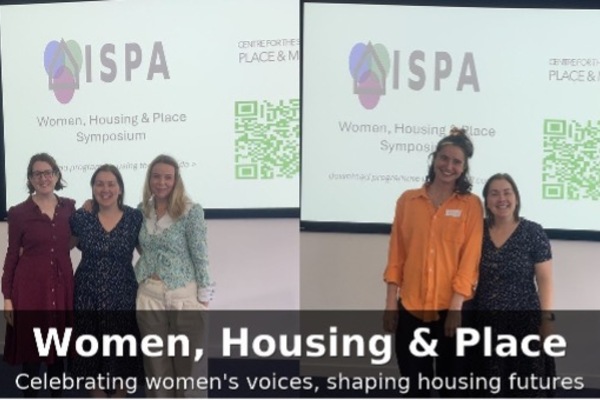Awaab Ishak’s tragedy: a wake-up call for accountability and sustainability in social housing
Chiara Prevete - Lecturer in Law at the University of Southampton (Law School) and a Member of the Research Centre for People Property Community.
In 2020, two-year-old Awaab Ishak tragically passed away after prolonged exposure to mould in the home his parents rented from Rochdale Boroughwide Housing (RBH), a housing association in England. This heartbreaking incident underscores a catastrophic failure in the social housing system, as Awaab’s parents had reported the mould as early as 2017 and continued to raise concerns until his untimely death. Unfortunately, this case is just one in a series of public scandals within the English social housing sector in recent years. Such cases highlight a disturbing breakdown in the relationship between citizens and the state, rooted in the inability of citizens to voice their concerns and hold the state accountable effectively.
At the heart of the citizen-state relationship lies the concept of “voice” as the primary instrument of accountability. Public accountability falters when this voice is stifled or ignored, as in the Awaab Ishak tragedy and the Grenfell Tower fire. Accountability, broadly defined as the obligation to account for one’s actions to another party, is a cornerstone of democratic governance. However, accountability is an elusive concept in legal and practical terms, varying widely depending on its context.
This research delves into the concept of “extended accountability” a term that goes beyond traditional mechanisms—such as parliamentary oversight and judicial review—to include grievance handling and internal reviews. In the context of social housing, extended accountability means not only holding public officials and housing providers responsible for their actions but also ensuring that the concerns and grievances of tenants are heard and addressed. The shift from a welfare state to a regulatory state has introduced new public bodies, like the Housing Ombudsman and the Social Regulator, tasked with overseeing social housing practices. Despite these efforts, recent tragedies reveal significant gaps in ensuring these mechanisms translate into real-world accountability.
The limits of traditional accountability mechanisms and social sustainability dimension
The tragedy of Awaab Ishak highlights the urgent need for a shift in how we approach accountability and sustainability in social housing. Policymakers and housing providers must work towards a system that prioritises tenant well-being by integrating social sustainability principles into tenant participation and improving accountability mechanisms. This research aims to spark discussions and actions that address the complex relationship between accountability, tenant participation, and social sustainability. By closing the gap between regulatory intentions and real-world outcomes, we can prevent future tragedies and create a housing system that serves all citizens fairly and upholds social justice.
Accountability has long been a focus of constitutional law in the British state. Challenges include ensuring public officials align with democratic will and promoting fairness and rationality in administrative decision-making. However, traditional methods of accountability struggle to meet these goals, particularly as the delegation of authority grows. As seen, the Housing Ombudsman serves as one of the accountability institutions. However, while the Ombudsman can recommend compensation, it cannot mandate specific actions or issue enforceable orders for urgent work that needs to be completed. In some cases, the investigations by the Ombudsman can be delayed, as demonstrated by the investigation into Rochdale Boroughwide Housing (RBH) following the tragic death of Awaab Ishak. This investigation revealed a culture of “othering” among practices of social landlords, highlighting a pattern of exclusion and marginalisation of residents perceived as different.
In contrast to accountability, the concept of sustainability—especially as it is framed in political rhetoric—appears to have no drawbacks. For instance, the 2024 Labour Manifesto prioritises sustainability and new infrastructure over accountability rules in the housing sector.
Sustainability has expanded beyond economic and ecological dimensions to encompass social and cultural aspects, promoting a more holistic approach to development. This broader understanding of sustainability allows us to reevaluate housing policies by emphasising tenant welfare and encouraging active participation. Social sustainability emphasises inclusive processes where all voices—particularly those historically excluded—are heard. In the context of social housing, involving tenants in management decisions has been advocated as a solution to implementing safety policies and regulations.
Bridging the gap: Introducing a new framework that ensures strong accountability measures
This research proposes a new framework to analyse the relationship between social sustainability and accountability. The connection between social sustainability and accountability highlights the necessity of measuring and implementing sustainability through public responsible practices. The discussion unfolds in three parts. First, the research focuses on accountability and tenant participation. This part explores the links between accountability and tenant involvement in social housing management, focusing on the English social housing system. It examines the role of accountability in fostering meaningful tenant participation. The second segment delves into the types of accountabilities relevant to tenant participation, particularly the roles of the Social Housing Regulator and the Housing Ombudsman before and after the Social Housing (Regulation) Act 2023. These bodies are designed to ensure social landlords maintain safe, habitable conditions and support tenant engagement. However, as evidenced by Awaab Ishak’s case, these mechanisms often fall short of their intended impact. The final part analyses documents released by the Social Housing Regulator and the Housing Ombudsman in response to Awaab Ishak’s death. This analysis aims to bridge the gap between regulatory frameworks and tenants’ lived experiences, fostering a more accountable and sustainable housing system.
I presented these ideas at the Sheffield Housing Studies Association Conference in 2024, with a forthcoming publication planned for 2025. To learn more about my research, please contact me at [email protected].
References
Weaver C. (2022). Awaab Ishak’s death shed light on a social housing scandal. Now we have a brief chance to fix it. The Guardian
Scott C., Accountability in the Regulatory State (2002). Journal of Law and Society, volume 27, Issue1, March 2000, 38-60.
Doyle, M., & O’Brien, N. (2020). Reimagining administrative justice: human rights in small places. Palgrave Macmillan.
Pieraccini, M., & Novitz, T. (2020). Legal Perspectives on Sustainability (1 ed.). Bristol University Press.
Jacobs, K., Flanagan, K., & De, V. J. (Eds. (2024). Research handbook on housing, the home and society. Edward Elgar Publishing Limited

Bio: Dr Chiara Prevete is a Lecturer in Law at the University of Southampton (Law School) and a Member of the Research Centre for People Property Community. Her main research draws on socio-legal and comparative scholarship to explore how the uncontrolled creation of rules around housing management in England and Europe has left tenants without a clear voice to challenge landlords. You can contact Chiara on [email protected].








